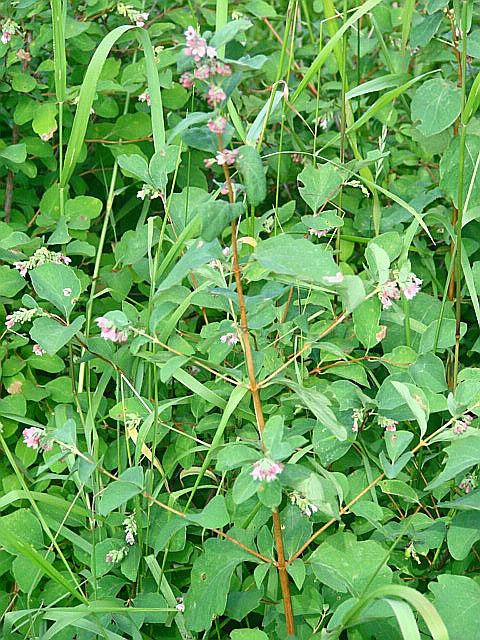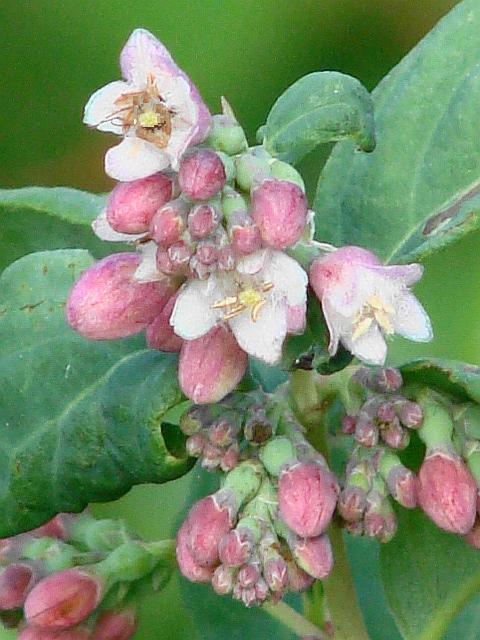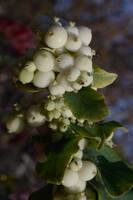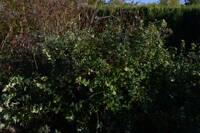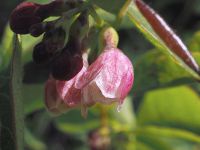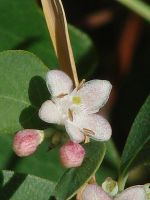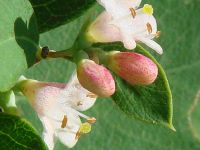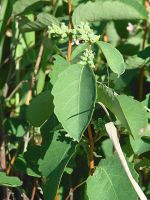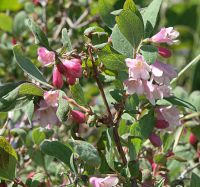Distribution: Occurring east of the Cascades crest in Washington; British Columbia south to Utah, east to the Atlantic Coast.
Habitat: Prairies, forest margins, and bottomlands from low to mid-elevations.
Flowers: June-August
Origin: Native
Growth Duration: Perennial
Conservation Status: Not of concern
Pollination: Bumblebees, bees, moths, wasps
Deciduous, erect, branching shrubs 3-10 dm. tall, spreading freely from rhizomes and often forming dense colonies; young twigs usually puberulent.
Leaves opposite, elliptic or ovate, often broadly so, entire or with a few blunt, coarse, irregular teeth, 2.5-8 cm. long and 1.5-5 cm. wide, glabrous above and puberulent beneath; petioles 3-10 mm. long.
Inflorescence of short, dense, few- to many-flowered racemes, borne on the ends of twigs and in the upper axils; corolla pale pink, 5-8 mm. long, often wider than long, densely hairy within, the 5 lobes spreading, a little longer than the tube; stamens 5, anthers 1.5-2 mm. long, shorter than the filaments; style elongate, 4-7 mm. long, usually long-hairy near the middle.
Fruit berry-like, sub-globose, 6-9 mm. long.
Publication: Fl. Bor.-Amer. 1: 285. 1833.
PNW Herbaria: Specimen records of Symphoricarpos occidentalis in the Consortium of Pacific Northwest Herbaria database
WA Flora Checklist: Symphoricarpos occidentalis checklist entry
OregonFlora: Symphoricarpos occidentalis information
E-Flora BC: Symphoricarpos occidentalis atlas page
CalPhotos: Symphoricarpos occidentalis photos

